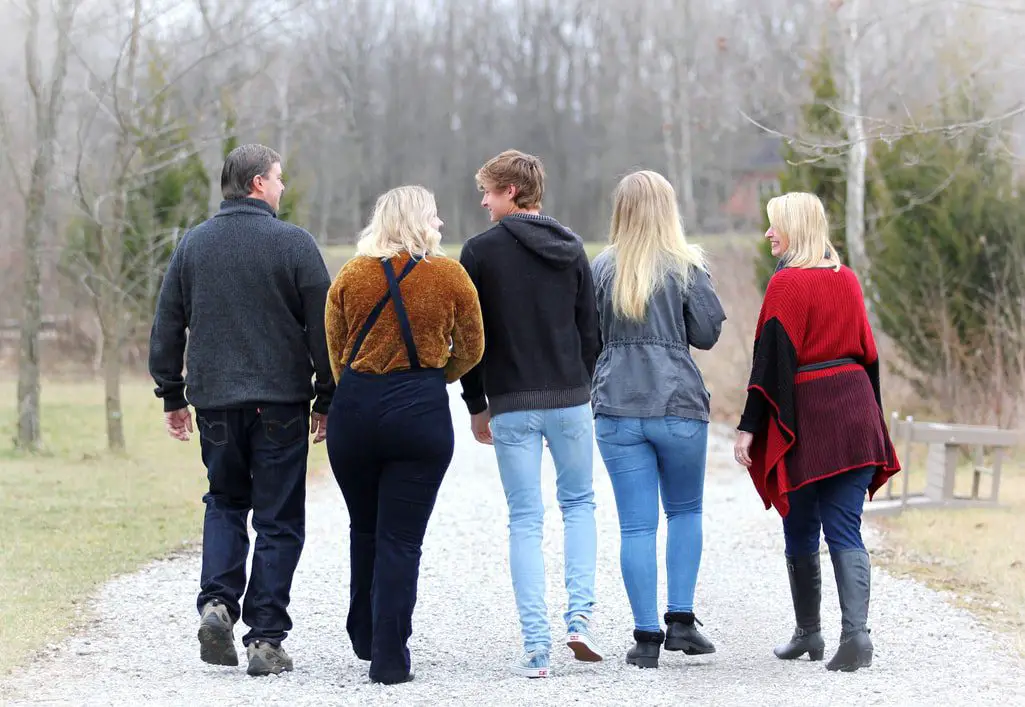Self-awareness changes relationships. Here’s what you need to know.
When we think of relationships, our mind usually goes to two people as a pair. Which makes sense, as a relationship is literally defined as the way two people are connected.
It’s like the phrase, “It takes two to tango.” Without two, one person is just awkwardly swinging their hips and arms through the empty air.
But this focus on the connection of the two, while important, is missing a key component. It neglects the individual side of relationships.
In particular, it overlooks each individual’s own self-awareness of themselves before even entering the connection in the first place.
Don’t get me wrong; relationships can exist with two unaware people. It’s just not going to be pretty. Kind of like how any two uncoordinated schmucks can move their bodies to polka music, but it takes to people who can tango to tango well.
Are you over the tango metaphor? Good – it’s time to move on to self-awareness.
What Self-Awareness Is
Self-awareness, quite simply, is our ability to understand our thoughts and emotions and how they influence our behaviors. It includes:
- How we view ourselves
- How we see the world
- How we behave in certain situations
- How we maneuver through life
Self-awareness is not something you can add to your life like my aunt adds Christmas decorations to her collection (spontaneously and thoughtlessly). Instead, it is something that must be honed and developed over time.
Self-awareness is worth it, though, for many reasons, including easier decision-making, greater happiness, and stronger relationships.
Here, we are going to focus on stronger relationships.
.
Self-Awareness Changes Relationships of all Kinds
When I say relationship, most of you probably think of a romantic relationship. Whether we can blame Disney movies or Kay Jewelers for this, I’m not sure. Still, this fixation on romance is one of the reasons so many people today feel lonely.
Don’t get me wrong, romantic relationships are undoubtedly important; however, there are a lot of other types of crucial relationships, too.
It’s like if we only thought of McDonald’s when we talk about fast-food restaurants. Sure, those voluptuous yellow arches are a beacon of love, but we’d be missing out on so many other greasy goodies (and a Wendy’s chocolate frosty).
Self-awareness is critical for all types of healthy relationships.
Reasons Self-Awareness Changes Relationships for the Better
Self-awareness will strengthen your relationships in several impactful ways. Self-awareness will allow you to:
1. Understand your own emotions and behaviors in the relationship
Everyone’s got their own stories and experiences, which is beautiful. Everyone’s also got their own set of biases, irrational emotional reactions, and unhealthy defense mechanisms.
Not so beautiful.
No matter how similar two people might be, there’s bound to be differences between them. Working through these differences, regardless of how tiny they might seem, can get confusing and messy.
If both parties don’t fully understand their own emotions and behaviors, it will get even messier.
Let’s say Susie tells her best friend Johnny about her most recent family drama, and Johnny makes a few sarcastic jokes in reply. Susie, disappointed by his lack of concern, gets angry and marches off. Johnny, mad at her reaction, refuses to call her.
Had Susie been more self-aware to know that she always talks about her family drama, she might have chosen her words more carefully. And had Johnny known that family conversations trigger him because of his own tumultuous upbringing, he might have better controlled his emotions.
The situation – and hurt feelings – could have been avoided with greater self-awareness.
To be fully present in a relationship, you need to understand yourself fully first. This includes having self-awareness about your emotions and behaviors, among other things.
2. Seek relationships you want and/or need
Self-awareness will also help you understand what you want and need from your relationships. And no, I don’t mean, “I’m looking for a 6’3” blonde with eyes like the ocean and abs like a professional gymnast” (although I wouldn’t complain).
What do you need in a friend? A partner? A confidant? Once you know these essential qualities, you can focus your time and effort on finding relationships that satisfy your needs.
For example, I spent the first couple of years after college trying to be friends with everyone. Not only did I call my college friends on a rotating basis, but I also jumped at the opportunity to develop new friendships in my new town. If people were willing to hang out with me, I was ready to go – the more, the merrier!
It took a couple years for me to begin to realize which friendships I valued and which weren’t as important to me. My best friends were supportive, loyal, adventurous, and funny; they also shared some similar core values.
Because I was self-aware, I began to concentrate on the people that gave me these qualities.
Self-awareness of what you need from relationships doesn’t mean disregarding everyone who doesn’t meet a specific checklist. (After all, staying open to new encounters and allowing room for change is vital for happiness). It will, however, enable you to prioritize your efforts around relationships that will bring you happiness.
3. Communicate more effectively
It should come as no surprise that communication is one of the essential components of any healthy relationship. If we can’t communicate with each other, then we might as well be two sea sponges sharing the same rock. (I tried to think of the most inanimate, uninteresting animal I could… please write in with better suggestions).
Communication itself requires a lot of skill and practice. Before any of that jazz, however, we need to know what it is we want to communicate.
By developing our self-awareness, we can better know what it is we want to express.
Whether that be hurt feelings, life dreams, or desire to eat at Chipotle for dinner, we can effectively tell the other person in a way that can yield positive results.
At times, I’ve grown frustrated with my boyfriend and gotten very critical with him. When he asked what was wrong, I avoided the question and slung out some more insults. Naturally, he then grew frustrated with me, and our conversation would turn into a fight.
I didn’t mean to avoid the question. In fact, I wished that I had a perfect answer to his question (because clearly, there was something wrong).
The glaring communication breakdown happened because I didn’t know what to say.
Had I been self-aware to know what was frustrating me in the first place, I could have better communicated that and worked to a solution sooner.
4. Experience greater empathy
Self-awareness allows us to see beyond the surface-level issues and get closer to the core. Humans are complicated (and often irrational) beings. If we were to judge everyone solely on their actions, we’d be missing a substantial piece of their story.
We know this because we know we have our own stories.
The more self-aware we are, the more we can understand that what we do and what we intended to do does not always match up.
For example, I know that I didn’t intend to be short with my parents on the phone. I also know that they called me at a time I was feeling stressed and hurried. While I certainly should own my actions and work to improve, I don’t need to view myself a horrible a** with no compassion.
Self-awareness will help us apply this same logic to others. In doing so, we can experience greater empathy.
Let’s say I called my friend, and she sounded short on the phone. Since I know that I sometimes behave that way, I can empathize with her actions instead of blaming her.
In the end, this greater empathy for others will help strengthen our relationships.
5. Present a more authentic self
It’s difficult to ask someone to accept you as you are… if you don’t even know who you are.
It’s our natural tendency to adapt our behaviors to fit in or make others feel more comfortable. This is because our need for belonging is so strong, we value fitting in over being true to our own beliefs.
In addition to this pressure to fit in, another obstacle is also holding us back: it’s difficult to know who we want to be in the first place.
Remember when you were a teenager trying to figure out who you wanted to be? I personally went from the jock in basketball shorts to the wannabe prep in O.C.-inspired polos to the “well-dressed” girl in sleeveless sweaters.
Early adult life is kind of like being a teenager, only with more emotional intelligence and less acne.
When we aren’t self-aware, we take away the chance to be in a healthy relationship in which both parties present and accept their authentic selves.
Self-awareness will allow you to understand who you are and show that to the people in your life, ultimately changing your relationships.
6. Ask for help and work as a team
We don’t have trouble highlighting our strengths from others, but we generally try to hide our weaknesses in relationships. Mainly because we’re afraid to be vulnerable and feel shame for not appearing perfect (except for me since I actually am perfect).
We also don’t always know what our weaknesses are. I think I’m good at communicating and showing affection, but am I?
Self-awareness can help you understand your own weaknesses and, instead of hiding them, ask for help in the areas you’re not secure with. In doing so, you can open up an opportunity for your relationship to function as a team.
My boyfriend is bad at planning things. Meanwhile, I’m great at planning things, but I suck at relaxing and de-stressing when I should (okay, maybe I’m not perfect). For a while, we did an emotional dance where I would get on him for not planning, and he would get on me for not letting things go. Our weaknesses became a point of contention.
Once we fully understood our own shortcomings, we could begin using each other’s strengths to help overcome our weaknesses.
If you are self-aware of when you need help and are brave enough to ask for it, you can take your relationship from two circling opponents to one cohesive team.
7. Love yourself so you can love others
Before you get on me for bringing up some fluffy “love” talk, hear me out. For any relationship to thrive, we must show the other person understanding, compassion, and affirmation.
This can’t happen if we don’t show ourselves the same sentiments.
In fact, some people argue that you can’t love someone else more than you love yourself.
I understand that this could be controversial, but take a moment to consider it logically. If you tell someone that you don’t judge them, and then you judge yourself for the same exact thing, were you really judgment-free in the first place? Is this possible?
Let’s say Jamal isn’t very self-aware. As such, he continually feels guilt and shame for many aspects of his own life. No matter how hard he fights it, his low self-esteem is going to affect his relationships. And when his sister comes to him with similar self-esteem issues, can he really give her comfort that he doesn’t believe for himself?
Self-awareness doesn’t immediately translate into self-love. Still, it is a necessary part of the process in understanding and accepting yourself. Only then can you understand and accept others.
.
Develop your Self-Awareness and Change your Relationships
Developing your self-awareness doesn’t happen overnight. There are, however, simple ways for you to build your self-awareness that don’t require a huge life change.
You also can focus on the two types of self-awareness: internal and external.
Internal Self-Awareness Changes Relationships Dramatically
Internal self-awareness is your understanding of your own emotions, thoughts, and behaviors.
The first category of ways you can be more internally self-aware involves simple thinking patterns:
- Implement the habit of asking “what” questions throughout your day to take inventory of your thoughts and emotions
- Identify recurring behavioral and emotional patterns
- Conduct check-in or daily reflections
Other ways can be easily implemented in your everyday life:
- Talk out your experiences with friends
- Ask for feedback
- Apply what you know about human nature
Finally, you can take specific action to help you become more self-aware:
- Write down your goals
- Tell your story from an outside perspective
- Journal and follow good journaling practices
External Self-Awareness Changes Relationships for the Better Too
External self-awareness is equally as important, but this type of self-awareness focuses on your understanding of how others perceive you.
To develop your external self-awareness and strengthen your relationships, you can:
- Ask for feedback through formal and informal means, making sure to follow the three R’s when getting feedback: receive, reflect, and respond
- Practice observing the people around you through observing body language, comparing and contrasting different scenarios, and noticing patterns
.
Conclusion
Self-awareness is a critical component of a happy life. In particular, self-awareness is necessary to strengthen and maintain healthy relationships.
In relationships, self-awareness will allow you to:
- Understand your own emotions and behaviors in the relationship
- Seek relationships you want and/or need
- Communicate more effectively
- Experience greater empathy
- Present a more authentic self
- Ask for help and work as a team
- Love yourself so you can love others
Developing your internal and external self-awareness is worth it, so why not take the first step and consider some of the questions below.






